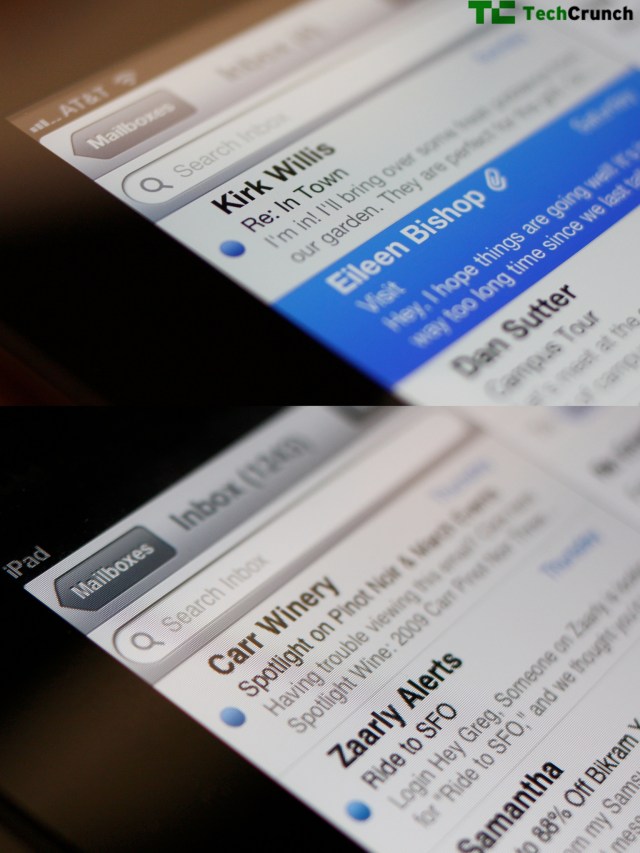Sunday, March 11, 2012
Adobe Audition CS5.5 4.0 Build 1815
Adobe Audition CS5.5 4.0 Build 1815 + Rus | 127 Mb
Adobe Audition - a professional tool to work with audio files, intended for specialists in the field of audio and video products. Adobe Audition offers unlimited opportunities for mixing, editing, creating master copies and processing of sound effects. The product combines the flexibility of the process with the utmost ease of use and allows you to create a variety of audio products of the highest quality. Adobe Audition - a complete recording studio equipped with a flexible and easy to use tools.
A new version of the product features a tighter compatibility with applications from third-party vendors, as well as a host of new features, including built-in CD burning and powerful audio effects. More flexible and precise editing and preview, as well as over 500 new audio fragments (currently over 5000) will allow you to create stunning audio. Different styles, including disco 70's, the rumba, as well as special pieces for weddings and special events.
Built-in function to create CDs. Allows you to quickly and easily create a master copy of songs without leaving the program
Technology support ReWire. Allows full audio strimat between AA and other programs that support ReWire, such as Reason and Ableton Live.
Technology support VST. Integrated support for VST plug-ins can extend through the use of effects produced by other companies that support this technology.
Frequency sound editing. The program allows you to visually select and isolate the sounds of certain frequency and length using the lasso tool in the spectral window editor, with subsequent purification, modification or treatment effects.
The adjustment in pitch sound. Function aligns false or incorrect pitch or create interesting effects by changing the height of the original sound. Has auto or manual fine tuning.
Enhanced support for video. Quickly and easily edit audio video accompaniment by the possibility of video frames in the timeline. Import of various formats including AVI, DV, MPEG and WMV
Changing the length of the audio piece on the timeline. Allows you to visually reconcile the time (start-end) audio and video fragments without changing the pitch, making it ideal for combining audio effects or dialogue with the video fragments.
Automatic removal of cod and noise. Rapid restoration of audio recorded from vinyl records, radio microphones, cameras and other sources
Removing vocals or instruments from the audio. Allows you to remove the vocals or certain instruments from the sound track to create karaoke, while preserving the stereo effect.
Home: h
ttp://www.adobe.com/products/audition.html
Download:
http://extabit.com/file/28e6twsluqzpw
http://netload.in/datei1xozK1c5U9/Automize.9.14.zip.htm
http://depositfiles.com/files/ftnxfa6oi
http://turbobit.net/ivwx2qfepawm.html
http://hitfile.net/mYuc
Kaspersky Keys All version (11/3/2012)
Collections of Kaspersky Keys All version Daily Update. Instruction for activation inside the file.
Download
==========
Download from Letitbit
==========
Download from Letitbit
Mozilla Firefox 11 Final + Portable

Mozilla Firefox 11 Final + Portable | 15 MB / 18 MB
Mozilla Firefox is a free and open source Web browser descended from the Mozilla Application Suite and managed by Mozilla Corporation. Firefox is the second most widely used browser.
To display web pages, Firefox uses the Gecko layout engine, which implements most current web standards in addition to several features that are intended to anticipate likely additions to the standards.
Features:
Anti-Malware
Firefox protects you from viruses, worms, trojan horses and spyware delivered over the Web. If you accidentally access an attack site, it will warn you away from the site and tell you why it isn’t safe to use.
Anti-Phishing
Shop and do business safely on the Internet. Firefox gets a fresh update of web forgery sites 48 times in a day, so if you try to visit a fraudulent site that’s pretending to be a site you trust (like your bank), a browser message—big as life—will stop you.
Instant Web Site ID
Want to be extra sure about a site’s legitimacy before you make a purchase? Click on a site favicon for an instant identity overview. Another click digs deeper: how many times have you visited? Are your passwords saved? Check up on suspicious sites, avoid Web forgeries and make sure a site is what it claims to be.
Forget This Site
Having second thoughts about having visited a certain Web site? With this feature, you can remove every trace of that site from your browser—no questions asked!
Parental Controls
Enforce parental control settings you’ve entered on Windows 7 — stop unwanted downloads and more.
Outdated Plug-In Detection
Some web pages require that you install small applications called plugins to watch videos, play games or view documents. These plugins are written by other companies, and it can be hard to make sure they’re always up to date. Since outdated plugins are a security risk, Firefox will let you know when you have a plugin that’s vulnerable to attack and direct you to the right site to get the updated version. View our plugin check page.
Clear Recent History
Clear all your private data or just your activity over the past few hours with a few quick clicks. You have full control over what to delete, and then your info is gone for good—on your own computer or the one at your local library. It’s that easy.
Private Browsing
Sometimes it’s nice to go undercover, so turn this feature on and protect your browsing history. You can slip in and out of private browsing mode quickly, so it’s easy to go back to what you were doing before as if nothing ever happened. It’s great if you’re doing your online banking on a shared computer or checking email from an Internet café.
Customized Security Settings
Control the level of scrutiny you’d like Firefox to give a site and enter exceptions—sites that don’t need the third degree. Customize settings for passwords, cookies, loading images and installing add-ons for a fully empowered Web experience.
Add-ons
Firefox looks for a secure connection before installing or updating add-ons, 3rd party software, and Personas.
Anti-Virus Software
Firefox integrates elegantly with your Windows antivirus software. When you download a file, your computer’s antivirus program automatically checks it to protect you against viruses and other malware, which could otherwise attack your computer.
Mozilla Firefox 11 Final
Download From Depositfiles
Download From Bitshare
Mozilla Firefox 11 Final Portable
Download From Depositfiles
Download From Bitshare
Thursday, March 8, 2012
Hands On With The New iPad

I’ve just gotten out of a quick hands-on session with the new iPad (and yes, it’s just called the iPad), and have come away with exactly the feeling I expected to have: that I need to buy one.
The first thing you should know, and also the reason there aren’t many pictures, is that as far as weight and shape, it’s almost exactly the same as the iPad 2. They wouldn’t allow comparison shots — probably because the new iPad is a little thicker — but the dimensional differences are minor and the overall feel is near-identical.
Let me tell you why I’m going to buy the new iPad. Or rather, let me show you.
Open it in a new tab to see the pixels up close.
The top picture is the new Retina screen, the bottom picture is the original screen. This close up (about a quarter of an inch), you can see the pixels. But from a normal distance, the text is so clear and the overall visual effect is so smooth, I can’t help myself.
I would love to read books and magazines on the iPad. I’d love to work from it, do my photo editing on it. But reading text and viewing images just wasn’t ever good enough. Now it is. The sharpness is as good as you expect, the device otherwise is more or less the same. Were you hoping for a redesign? That will happen eventually. Don’t be greedy.
As for the new apps, which they demoed for me, they look great. iPhoto feels like a lot of fun to use, though professionals will of course prefer the more robust controls in something like Aperture or Lightroom. For everyone else (and perhaps me), these basic controls over exposure, color, and so on (non-destructive and fairly robust; the brushes are nice) will be more than enough.
Beyond that, what’s to tell? Objective benchmarks will appear when we have our own unit; performance of the updated apps will have to be evaluated by users of the old versions; the new apps and games will have to be actually tried (the new Epic game wasn’t available for testing and Infinity Blade wasn’t upscaling very well); 4G speeds and coverage will be progressively evaluated; dictation is worthless in a crowded hands-on room; the cameras can’t be tested properly in a dim room with little connectivity; the main fact I ascertained is that having my hands on the new iPad was a lot like having my hands on the old iPad.
But having my eyes on it? That’s another story.
Major Changes In Facebook’s Amended S-1: Mobile Ads, Zynga, Yahoo Patents, Credit

Facebook today filed an amended S-1 to IPO that describes new risks based on its launch of ads for mobile, Zynga’s standalone gaming platform, and a patent dispute with Yahoo. It also explained how its concentrated voting structure would impact investors, and listed additional underwriters.
Here are the major revisions to the S-1 compared to the original Facebook filed at the beginning of February. Quotes can be interpreted as strict additions:
Risks
Mobile
- Facebook announced it will now start monetizing mobile using Sponsored Stories ads. It now states its ability to monetize mobile in “unproven” rather than noting it does not advertise on mobile.
Terms Of Service Violations
- Violation of its terms of service, such as creating duplicate accounts, is now listed as a risk that could harm its reputation and business. The Facebook brand could be negatively effected “by the actions of users that are deemed to be hostile or inappropriate to other users, or by users acting under false or inauthentic identities.” Investments to stem these problems may be unsuccessful.
- For example, another prolonged hacking attack like the one in November that spread pornography or gore in the news feed could reduce visits.
Zynga
- Zynga recently launched an off-Facebook gaming platform. If relations with Zynga worsens, it tries to migrate its users to its hosted gaming platform, or it stops investing in its Facebook games, Facebook’s business could be harmed.
- Facebook confirmed it makes a 30% tax on user purchases in Zynga’s games, despite agreements regarding traffic guarantees.
Patents
- Yahoo recently accused Facebook of violating 13 of its patents. Yahoo hasn’t commenced legal action against Facebook but could in the future. Additionally, “we face increasing competition and gain an increasingly high profile, including in connection with our initial public offering, we expect the number of patent and other intellectual property claims against us to grow.”
Inaccurate User Count Measurement
- Inherent challenges in measuring its user base could hurt Facebook’s reputation and business. If advertisers or developers believe its user counts are inaccurate they may be less willing to allocate budgets and resources to Facebook.
- For example “There may be individuals who have multiple Facebook accounts in violation of our terms of service, despite our efforts to detect and suppress such behavior. We estimate that false or duplicate accounts may have represented approximately 5-6% of our MAUs as of December 31, 2011.” This estimate is based on a sample that may not be representative and so it could be inaccurate.
- Mobile metrics may be inflated due to devices hat automatically ping Facebook’s server without a user taking action. “We estimate that less than 5% of our estimated worldwide DAUs as of December 31, 2011 and 2010 resulted from this type of automatic mobile activity, and that this type of activity had a substantially smaller effect on our estimate of worldwide MAUs and mobile MAUs.”
Voting Structure
- Facebook now lists itself as a “controlled company” whose board of directors does not have an independent nominating function.
- It notes that through voting agreements with major stockholders, Mark Zuckerberg has a large percentage of voting power. “ As a result:
- “Mr. Zuckerberg has the ability to control the outcome of matters submitted to our stockholders for approval, including the election of directors and any merger, consolidation, or sale of all or substantially all of our assets. This concentrated control could delay, defer, or prevent a change of control, merger, consolidation, or sale of all or substantially all of our assets that our other stockholders support, or conversely this concentrated control could result in the consummation of such a transaction that our other stockholders do not support. This concentrated control could also discourage a potential investor from acquiring our Class A common stock due to the limited voting power of such stock relative to the Class B common stock and might harm the market price of our Class A common stock.”
- The dual class structure of Facebook’s common stock and the voting agreements among certain stockholders concentrate voting control with Zuckerberg and other directors, which could limit or preclude stochkholders from influencing corporate matters.
- CEO Mark Zuckerberg and COO Sheryl Sandberg work for Facebook at-will with no specific time commitments.
Finances
- Last month, Facebook terminated its prior credit facility, raising its facility from $2.5 billion to $5 billion, and moving from a 0.15% commitment fee to a 0.10% commitment fee per annum on its daily undrawn balance.
- Facebook entered into a bridge credit facility allowing it to borrow up to $3 billion “to fund tax withholding and remittance obligations related to the settlement of RSUs in connection with our initial public offering.”
- When the post-IPO lock-up period ends, substantial sales of stock could cause the stock price to decline.
- Major additional underwriters now include Citigroup, Credit Suisse, Deutsche Bank Securities, RBC Capital Markets, and Wells Fargo Securities.
- Further added underwriters include Blaylock Robert Van LLC, BMO Capital Markets Corp., C.L. King & Associates, Inc., Cabrera Capital Markets, LLC, CastleOak Securities, L.P., Cowen and Company, LLC., Lazard Capital Markets LLC, Lebenthal & Co., LLC, Loop Capital Markets LLC, M.R. Beal & Company, Macquarie Capital (USA) Inc., Muriel Siebert & Co., Inc., Oppenheimer & Co. Inc., Pacific Crest Securities LLC, Piper Jaffray & Co., Raymond James & Associates, Inc., Samuel A. Ramirez & Company, Inc., Stifel, Nicolaus & Company, Incorporated, The Williams Capital Group, L.P., William Blair & Company, L.L.C.
User Growth Stats
- Brazil and Germany are now estimated to have penetration rates of 30-40%, not 20-30% as previously listed.
- The US user base grew to 161 million by the end of 2011, up 16% from the end of 2010.
- “DAUs as a percentage of MAUs increased from 54% in December 2010 to 57% in December 2011, which we believe was driven entirely by increased mobile usage of Facebook. We believe that increases in DAUs and in DAUs as a percentage of MAUs generally positively affect our revenue”
- “Worldwide mobile MAUs increased by 76% from 245 million as of December 31, 2010 to 432 million as of December 31, 2011″ not 425 million MAUs as previously listed.
- “We estimate that approximately 58 million mobile MAUs accessed Facebook solely through mobile apps or our mobile website during the month ended December 31, 2011, and the remaining 374 million mobile MAUs accessed Facebook from both personal computers and mobile devices during that month.” That’s a very small percentage of users who are only accessing via mobile where Facebook’s monetization potential is unproven — a bright point in the revised S-1
Sales Growth
- “As of December 31, 2011, over half of our revenue was generated by users in the United States and Canada. However, we are experiencing rapid revenue growth in markets such as Brazil and India due to growth in the number of users and their engagement and an increase in our sales efforts in those markets.”
- Facebook believes new advertising initiatives, including mobile ads, will increase the return on investment for advertisers and thereby increase advertising demand and spend.
- Marketers now have access to real-time Insights on their performance. This could increase spend on Sponsored Stories ads because advertisers will immediately know if a Page post is getting a positive enough reception to make it worth paying to turn into a Sponsored Story.
Post PC Indeed: Gartner Says 2012 PC Shipments Will Only Grow 4.4% To 368M Units

At yesterday’s Apple event, CEO Tim Cook ran through some big numbers that underscored just how strongly the iPad is pacing against PCs when it comes to consumer interest. Today, Gartner released some forecasts that underscore how that story is not set to change any time soon.
The analysts say that PC shipments are on track to grow by just 4.4 percent in 2012 — to 368 million units, as consumers continue to prioritize purchases of new tablets, and smartphones, ahead of buying new laptop or desktop computers. But at least this is a slight improvement on 2011, when Gartner said that shipments were essentially flat on 2010.
Post-PC, in this sense, is about sales rather than actual usage:
“It’s not that consumers aren’t using PCs. They are,” Gartner analyst Ranjit Atwal told TechCrunch. “It’s just that they’re using their current models and not replacing them anymore with new PCs.”
Of course, if you follow that to its natural conclusion, then eventually growing sales will translate into a tipping point for usage, although that is still a far way off. Figures out recently point to only about eight percent of internet traffic coming from mobile devices like phones and tablets.
Gartner notes that the fact that you can do all the basics now on a device like a tablet — email, social networking and internet access, not to mention all those apps — makes it even less of a priority to make sure that your PC is the newest and fastest of its kind. The move to more cloud services, relying significantly less on on-device storage, also takes another unique selling point away from PCs.
In the realm of sales, Atwal says that the challenge has been laid at the foot of PC makers by companies like Apple — or if we’re honest, by Apple alone — which have been setting the bar for what kind of functionality people want out of their internet devices these days.
Products like Windows 8 could advance the case for PC makers, and we’ve seen some interesting implementations of the OS already. (I was intrigued/bemused by the Acer device that turns a Windows 8 laptop into a Windows 8 tablet, Transformer-style.) But the question is, will that be enough to sway consumers’ attention, or as Atwal puts it, “Given all the innovation that PC vendors are promising, can they get to the front of the buying queue for consumers again?”
He notes that many of the new products built on Windows 8 are not likely to make their way to the market until close to the end of this year, meaning that if PC makers are going to catch up, it won’t be in 2012.
The figures over the last few years point to PCs having had a largely dry spell for sales while products like the iPad have been seeing very swift gains.
Atwal says that in 2011 the market was flat no growth. PC shipments totalled 350 million. In 2010, the sector saw a “blip” with growth of 13.8 percent to 350 million units. He says that was largely due to the mini-craze around notebooks and mini-notebooks. In 2009, the market grew only 5.5 percent to 308 million.
According to Cook yesterday, the iPad sold 15.4 million units last quarter — more than any single PC maker sold of its devices. HP was the nearest competitor at 15.1 million PCs for the quarter; Lenovo had 13 million PCs; Dell sold 11.9 million PCs and Acer sold 9.8 million PCs.
Post PC Indeed: Gartner Says 2012 PC Shipments Will Only Grow 4.4% To 368M Units

At yesterday’s Apple event, CEO Tim Cook ran through some big numbers that underscored just how strongly the iPad is pacing against PCs when it comes to consumer interest. Today, Gartner released some forecasts that underscore how that story is not set to change any time soon.
The analysts say that PC shipments are on track to grow by just 4.4 percent in 2012 — to 368 million units, as consumers continue to prioritize purchases of new tablets, and smartphones, ahead of buying new laptop or desktop computers. But at least this is a slight improvement on 2011, when Gartner said that shipments were essentially flat on 2010.
Post-PC, in this sense, is about sales rather than actual usage:
“It’s not that consumers aren’t using PCs. They are,” Gartner analyst Ranjit Atwal told TechCrunch. “It’s just that they’re using their current models and not replacing them anymore with new PCs.”
Of course, if you follow that to its natural conclusion, then eventually growing sales will translate into a tipping point for usage, although that is still a far way off. Figures out recently point to only about eight percent of internet traffic coming from mobile devices like phones and tablets.
Gartner notes that the fact that you can do all the basics now on a device like a tablet — email, social networking and internet access, not to mention all those apps — makes it even less of a priority to make sure that your PC is the newest and fastest of its kind. The move to more cloud services, relying significantly less on on-device storage, also takes another unique selling point away from PCs.
In the realm of sales, Atwal says that the challenge has been laid at the foot of PC makers by companies like Apple — or if we’re honest, by Apple alone — which have been setting the bar for what kind of functionality people want out of their internet devices these days.
Products like Windows 8 could advance the case for PC makers, and we’ve seen some interesting implementations of the OS already. (I was intrigued/bemused by the Acer device that turns a Windows 8 laptop into a Windows 8 tablet, Transformer-style.) But the question is, will that be enough to sway consumers’ attention, or as Atwal puts it, “Given all the innovation that PC vendors are promising, can they get to the front of the buying queue for consumers again?”
He notes that many of the new products built on Windows 8 are not likely to make their way to the market until close to the end of this year, meaning that if PC makers are going to catch up, it won’t be in 2012.
The figures over the last few years point to PCs having had a largely dry spell for sales while products like the iPad have been seeing very swift gains.
Atwal says that in 2011 the market was flat no growth. PC shipments totalled 350 million. In 2010, the sector saw a “blip” with growth of 13.8 percent to 350 million units. He says that was largely due to the mini-craze around notebooks and mini-notebooks. In 2009, the market grew only 5.5 percent to 308 million.
According to Cook yesterday, the iPad sold 15.4 million units last quarter — more than any single PC maker sold of its devices. HP was the nearest competitor at 15.1 million PCs for the quarter; Lenovo had 13 million PCs; Dell sold 11.9 million PCs and Acer sold 9.8 million PCs.























